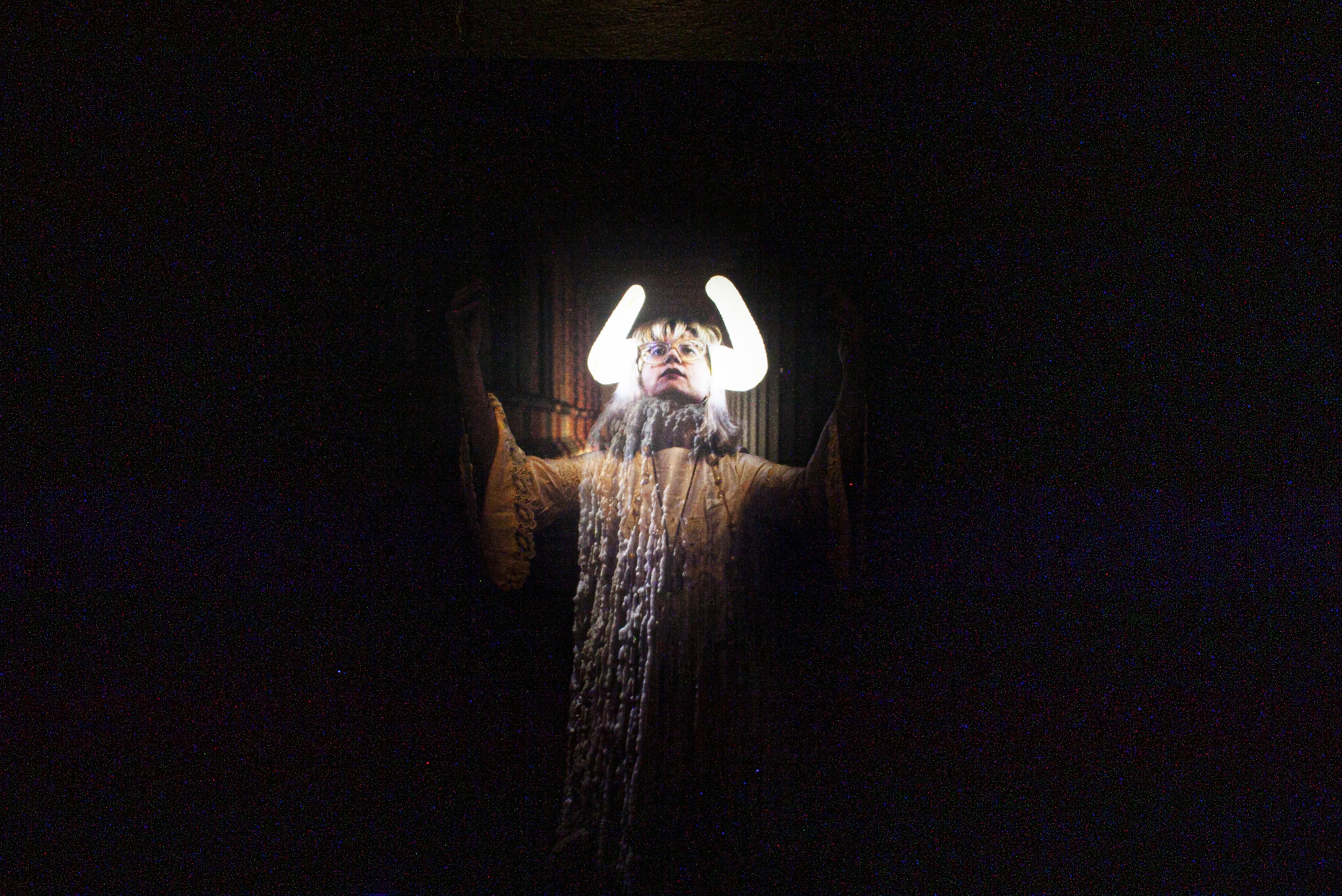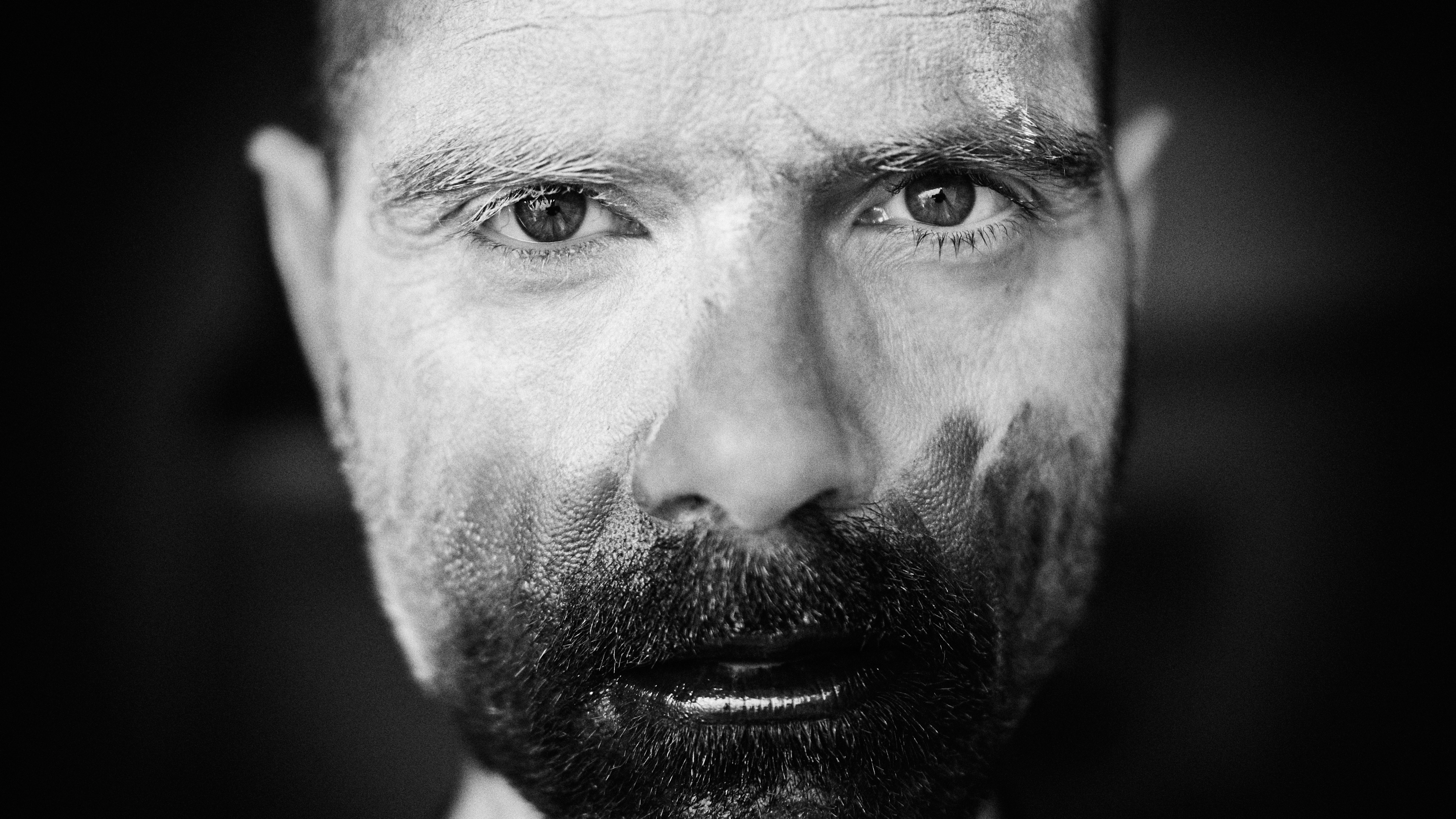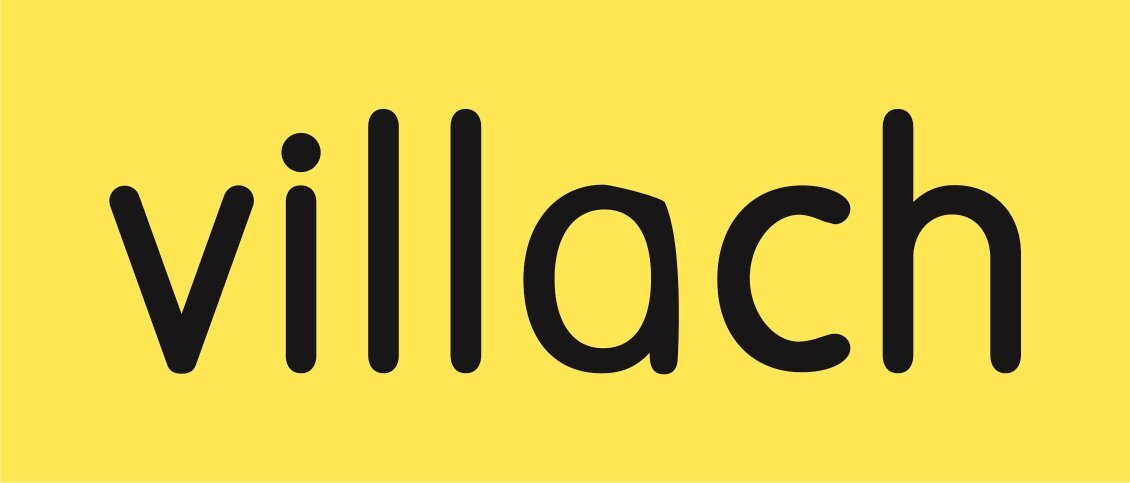EINTRITT: Vorverkauf € 18.-* / € 16.- **\
EINTRITT: Abendkassa € 21.- / € 16.- **\ € 8.-***
*Im Vorverkauf auf kupfticket.com/events/mary-ocher-support-fridolinschneck
**Ermäßigungen für Studierende und Mindestpensionist*innen
***Ermäßigungen für Jugendliche bis 19 Jahre und wirtschaftlich schwache Personen / Kontingent liegt an der Abendkasse auf
Ticketreservierung zum Abendkassapreis über office@kulturhofvillach.at oder +43699/15088177 (bitte um Angabe von Name und Telefonnummer)
GRATIS EINTRITT für Besitzer*innen der Jugendcard - nur gültig bei Vorlage der Jugendcard
Mary Ocher
 Foto © Boris Eladagsen, Titelfoto © Pietro Pontieri
Foto © Boris Eladagsen, Titelfoto © Pietro Pontieri
Experimental political pop artist Mary Ocher returns to European stages with her two drummers Your Government, armed with two new records released only months apart: “Approaching Singularity: Music for The End of Time” (Nov 3) and “Your Guide to Revolution” (June 14).
“Approaching Singularity” is accompanied by an essay that explores authoritarianism, unruly technology, and the diverse political and ethical implications of the impending changes for humankind. While “Your Guide to Revolution” is released with “A Guide to Radical Living: A no nonsense guide to living comfortably with just enough: Why wealth needs poverty and how not to play along” - a survival guide for artists and other non-conformists.
The new recordings feature collaborations with Mogwai, Red Axes, composer Roberto Cacciapaglia, pieces by Dorothy Ashby/Omar Khayyam, a homage to electronic music pioneer Delia Derbyshirem and much more, and range from cumbia, post-punk and field recordings, to cosmic synth compositions and deconstructed techno.
Mary toured in 40 countries with previous releases, recorded and produced with Canadian Psych guru King Khan and Hans Joachim Irmler of Krautrock pioneers Faust, and feature collaborations with avant-garde legends Felix Kubin, Die Tödliche Doris and Julia Kent, among others.
-
The full “Approaching Singularity” essay (a short version of which is available in print with the album): www.maryocher.com/essay-approaching-singularity-music-for-the-end-of-time
-
“A Guide to Radical Living: A no nonsense guide to living comfortably with just enough: Why wealth needs poverty and how not to play along” (the text accompanying “Your Guide to Revolution”). http://maryocher.com/G2RL
-
New video out now (19 April): Sympathize - with Your Government [https://www.youtube.com/watch?v=ihnOAa1H4As] (https://www.youtube.com/watch?v=ihnOAa1H4As)
Support: fridolin_schneck
 Foto © Mario Kuhs
Foto © Mario Kuhs
Mario Alexander Kuhs, a teacher, photographer, musician, and former frontman and mastermind of the Austrian band Psycho P., is attempting a solo project after a long musical absence. Under the moniker fridolin_schneck, he aims to rediscover the guitar for himself and find new interpretations for it.
“After playing the guitar for so long and being technically limited as a self-taught player, it’s difficult to break away from one’s own path. Therefore, the fridolin_schneck project was never really intended as a solo endeavor. I always envisioned other musicians and instruments being part of it. Music is about collaboration and dialogue. Unfortunately, up until now, the right people haven’t come together. In that sense, the solo project was born out of necessity.”
Even with Psycho P., Mario Kuhs never considered himself a traditional rock guitarist, but rather a seeker who skillfully avoided conventional riffs. The focus is on instrumental pieces, primarily featuring stripped-down clean guitar sounds, sporadically interrupted by vocals, and enhanced with loops at the right moments. The musical project fridolin_schneck is currently seen as a work in progress:
“I’m not entirely sure where the journey should lead. The musical foundation is there, but I’m constantly oscillating between the different realms of experimentation and convention, between instrumental music and classic song structures with vocal parts, micro-loops, and longer, intricate and complex pieces.”
The project is currently open in all directions, potentially allowing space for other musicians and avoiding limitations. To prevent the work from the past years spent in solitude from disappearing completely, these pieces are now being presented as solo compositions.
The emphasis is on instrumental guitar parts, rhythmic structures, crafted and interlocking miniatures, often in harmonic but sometimes contradictory interplay. Coming from a rock background, Mario Kuhs aims not to remain stagnant but to constantly move forward. The pieces draw inspiration from fingerstyle guitar music, jazz, rock, pop, metal, as well as classical singer-songwriter traditions.
“I’m not sure if it makes sense when I say I have an essayistic approach to making music. Even though there might not be an immediate connection, when it comes to how I think and create music, I think of Robert Musil’s ‘The Man Without Qualities’. I struggle to write linear songs; I’m always looking for different patterns that I can assemble like building blocks. Perhaps it’s because I’m a mathematician.”
Despite all the experimentation, the music remains conventional; the guitar is plucked, struck, and caressed extensively. Whether the project succeeds remains to be seen, as Musil’s words echo: “Things might just as well be different.”
- Info Hotline: 0699 15088177
- E-Mail: office@kulturhofvillach.at




